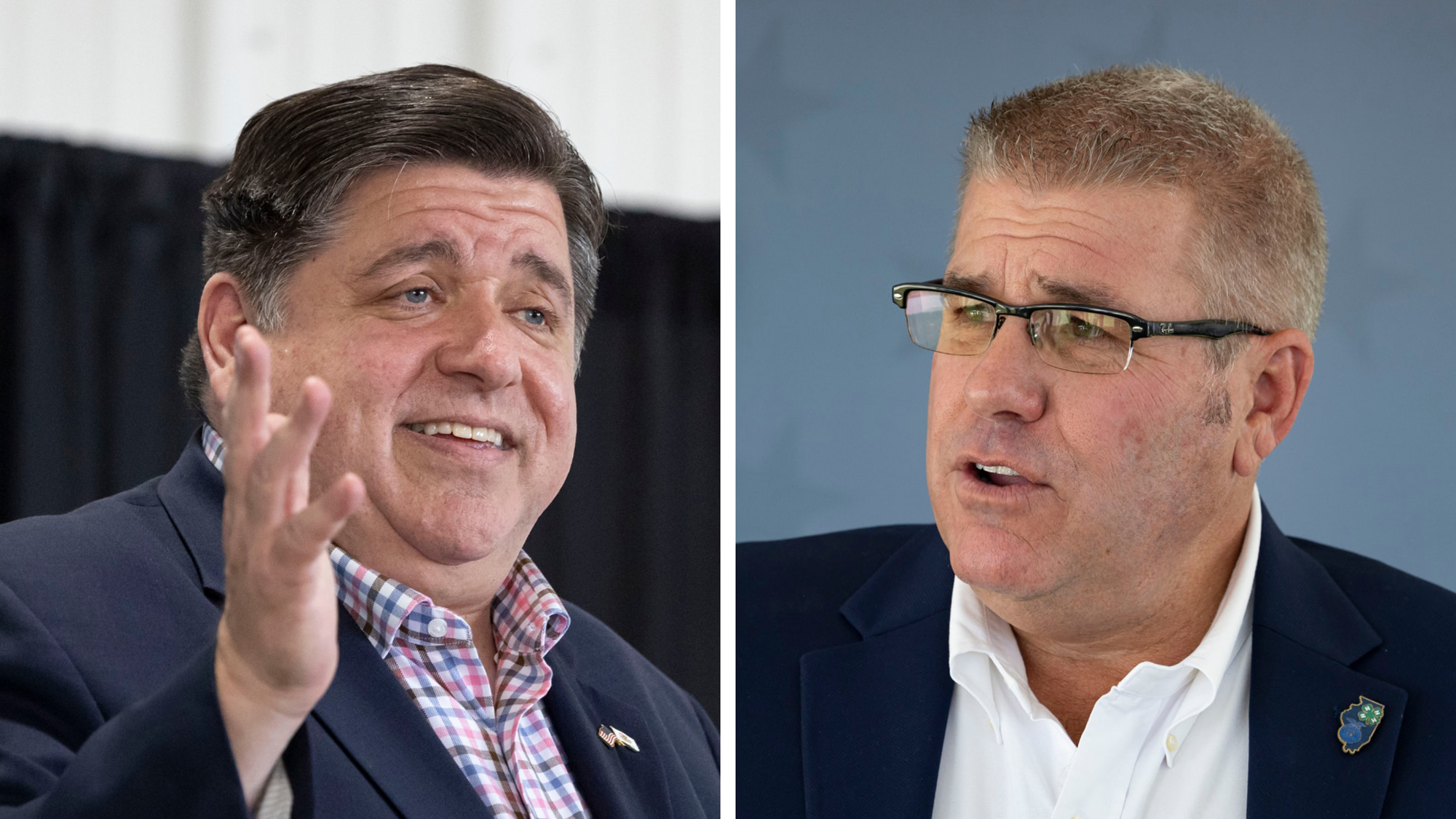Illinois Gov. J.B. Pritzker defeated Republican challenger state Sen. Darren Bailey on Tuesday to win a second term. The Associated Press called the race for Pritzker shortly after polls closed at 7 p.m.
In his victory speech, Pritzker promised to fight for “a quality education that’s not just a prize you win for growing up in the right part of town or being born to the right set of parents.”
Speaking at the Marriott Marquis in the city’s Near South Side, he vowed to work toward a world where “books are not banned, nor children are shielded from the truth about all of our American history.”
Bailey conceded just before 10 p.m. and challenged Pritzker to “be better for Illinois” and “be better for our children.”
“Republicans need to be the loyal opposition in Springfield: loyal to our state, loyal to our country, loyal to our Constitution, in opposition to the radical policies of the Democrats,” he added.
Public education in Illinois has been one of the key issues separating the two candidates during this election season as they staked out opposing positions on everything from mask mandates in schools to what is taught to how much money schools should get from the state.
Pritzker told Chalkbeat before the election that if he wins a second term, he plans to increase state funding for education for K-12 schools and expand access to higher education. He also said that he wants to make early education more affordable for families and increase pay for early childhood teachers.
Bailey, R-Louisville, served 17 years on the North Clay Board of Education and founded a private Christian school that his wife still runs. He was elected to the Illinois General Assembly in 2018 and opposed Pritzker throughout the COVID-19 pandemic, which dominated the governor’s first term.
Bailey easily won the primary against five opponents despite being significantly out-fundraised. On the campaign trail, he has appealed to “parental rights” voters and promised to ban “critical race theory” — a legal framework taught in law school that conservatives started using as a catchall phrase to oppose schools teaching about racism and the legacy of slavery.
He also railed against a new sex education law and said he would cut funding to education and fire the current state board of education members. In a rally Monday night, Bailey spoke to a group of suburban mothers about Democrats imposing vaccine mandates for school-age children if they were to be re-elected, ABC7 reported. Pritzker has not indicated he plans to mandate COVID-19 vaccines for public school students.
Pritzker came into office in 2019 after beating Republican incumbent Bruce Rauner with more than 54% of the vote in 2018.
Just over a year later, Pritzker’s administration had to respond to the coronavirus pandemic. He decided on March 13, 2020 to close all of the state’s more than 800 school districts. Schools rushed to get students learning online to continue the school year.
Backlash from conservatives soon followed. Early in the pandemic, Bailey made a name for himself opposing Pritzker’s executive orders in the courts. He filed a restraining order against Pritzker’s stay-at-home order and refused to wear a mask during the spring legislative session in 2020.
The state continued to adjust public health requirements for students and school employees to keep up with the shifting pandemic for the last couple of school years. Pritzker issued several executive orders requiring school employees to receive a coronavirus vaccine or test weekly, quarantining students and staff who tested positive for COVID-19 or were close contacts, and implementing universal mask mandate for K-12 schools. Most mandates were contested by parents during state school board meetings and in court.
While the COVID-19 pandemic dominated much of Pritzker’s first term, he also increased the state’s education budget by more than $1 billion, and signed laws to create an elected school board for Chicago, ban hairstyle discrimination in schools, and require Illinois schools to teach Asian American history.
Prior to Pritzker taking office, the state created an evidence-based school funding formula in 2017 with the intention of adding $350 million to the state’s education budget every year. The goal is to get the state’s 800 school districts to adequate funding by 2027 in an effort to address inequities across the state. The formula was signed into law after a budget impasse that lasted between 2015 to 2017 under the Rauner administration and resulted in funding cuts to K-12 schools and a decrease in funding for the state’s tuition assistance program for low-income students.
During Pritzker’s first term, he kept a bipartisan promise to add at least $350 million toward K-12 education in 2019, 2021, and 2022. In 2020, however, the budget remained flat due to the economic impact of the coronavirus pandemic.
In the 2022 budget, the governor increased funding for early childhood education and for the Monetary Assistance Program that allows students from low-income families to attend college.
In 2021, Pritzker signed into law a bill that made Illinois the first state to require public elementary and high schools to teach Asian American history. He also signed the Jett Hawkins bill that prevents private and public schools from discriminating against students based on hairstyles historically associated with race, ethnicity, or texture.
Pritzker also signed bills that expand the Chicago Teachers Union bargaining rights, which has been a point of contention for over two decades, and will give Chicago a fully elected school board with 21 seats by 2027.
Samantha Smylie is the state education reporter for Chalkbeat Chicago covering school districts across the state, legislation, special education and the state board of education. Contact Samantha at ssmylie@chalkbeat.org.
Becky Vevea is the bureau chief for Chalkbeat Chicago. Contact Becky at bvevea@chalkbeat.org.






